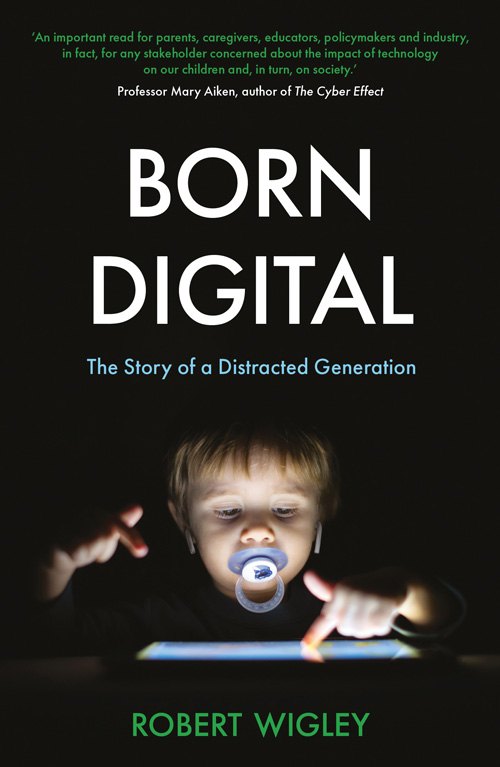
by Professor Robert Wigley
Children are now getting devices at a younger age and spending more time on them. 29% of babies under the age of one watch TV and video content for about ninety minutes a day, while 64% of children watch a little more than two hours of content a day between their first and second birthdays.
42% of children under the age of eight have their own tablet, with more than half getting their tablet between the ages of five and eight. Another Common Sense Media study in 2019 found that by age 12, the penetration of smart phone ownership had increased from 41% in 2015 to 69% in 2019.
So how much should we worry about the effect of exposing a child’s brain to earlier and more screen time?
The dangers
In 2018, two of Apple’s largest investors urged the phone manufacturer to take action against smart phone addiction among children amidst growing concerns about the effects of technology and social media on youth.
But is this all a rerun of arguments which arose when TV started becoming popular and parents worried about it turning children into ‘couch potatoes’, having a detrimental impact on family relationships with the potential to ruin children’s eyes and brains? Lynn Spigel, Professor of Screen Cultures at Northwestern University, asked as TV was widely adopted whether TV was a new Frankenstein that threatened to turn against its creator and disrupt traditional patterns of family life.
No, digital interaction is different and more concerning. Dr Richard Freed, an eminent child psychologist and author of The Wired Child, says, “The latest brain imaging studies show that young children’s interactions with parents and other adult caregivers shape the architecture of the developing mind – a use it or lose it principle exists.” The American Academy of Paediatrics, whose mission is ‘dedication to the health of our children’, concurs, noting that ‘young children learn best from – and need – interactions with humans, not screens’. We should therefore be wary of efforts to introduce interactive technologies to the young; the devices’ very ‘interactivity’ may interfere with the human connections young children must have for optimal brain and emotional development.
So what can parents do to reduce the harmful effects of screen time?
1 Delay purchasing a phone for your child and attempt to make their first phone something simpler than a smart phone.
2 Limit their data package and use child protection software.
3 Beware of seemingly harmless ‘education’ apps and games which children use to learn. They can become ‘gateway’ games to entertainment games that will later displace reading and homework. As such, it is important to research the actuality of education games before buying them for children.
4 Avoid video games until children are older. Two leading US psychologists, Dave Grossman and Gloria DeGaetano, have recommended not allowing children to access video games until they are at least 12 and preferably 14. Once games are allowed, it is recommended that screen time be strictly limited to avoid addiction. Xbox, which manufactures some of the bestselling gaming systems of all time, has numerous features designed to enable diligent parents to keep their children’s use responsible and prevent harms. These include the ability to set device, app and screen time limits; produce activity reports showing what they have been doing; control the child’s purchases; keep track of purchases; limit the ability to join group games; and facilitate muting and blocking of other parties and report bullies.
5 Moderation isn’t the answer. Freed suggests that parents “Instinctively know moderation isn’t a good way to protect children from drug and alcohol addictions. Responsible parents don’t consider giving children – especially when they are young – moderate amounts of alcohol, tobacco or recreational drugs, because we know that young brains struggle mightily with self-control.” Instead, insist on phone downtime (particularly during family meals or homework) and forbid the phone immediately before sleep and during the night.
You may have to choose between being your child’s friend and their parent. When it comes to homework and the use of laptops, make sure the laptop doesn’t have any other apps on it, particularly gaming or messaging apps and take the mobile phone away. You need to avoid the potential for your child to be distracted during study time to the greatest extent possible.
Professor Robert Wigley is the author of Born Digital: The Story of a Distracted Generation available on Amazon, Kindle and Audible and in all good book shops.











